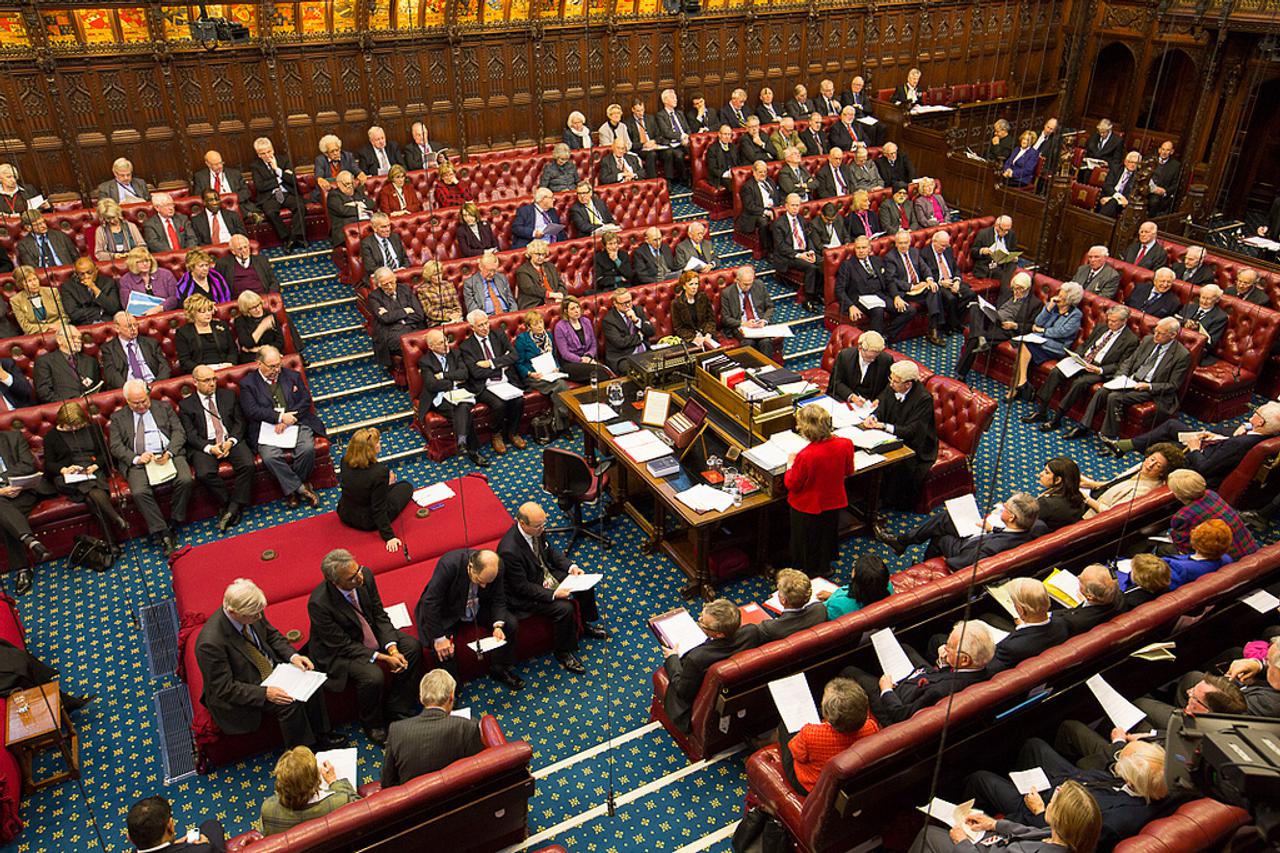
Judge raises ‘appalling prospect’ of man losing citizenship for third time
Peers will debate an expansion to the Home Secretary’s citizenship-stripping powers
(Photo: House of Lords/Roger Harris)
An immigration judge warned a tribunal last week of the ‘appalling prospect’ of a man losing his British citizenship three times, under legislation being debated today in the House of Lords.
Iraq-born Hilal al Jedda won a six-year battle to regain his British citizenship in October, when the Supreme Court ruled the decision illegally made him stateless. But rather than return his passport, three weeks later the Home Secretary Theresa May issued removed his citizenship again. This left him at the beginning of the appeals process, where he had been six years ago.
– Tom Watson MP
Under the British Nationality Act, the Home Secretary can remove the UK citizenship of individuals if she feels their presence in the UK is ‘not conducive to the public good’. The only restriction is that she cannot make individuals stateless, so in practice the orders can only be used against dual nationality individuals.
This afternoon, the House of Lords will hear the second reading of the Immigration Bill. This includes an amendment – tabled at the last minute of the Bill’s progress through the Commons last month – that would dramatically expand May’s ability to remove citizenship. Under the new clause, she would be able to remove nationality even when the individual will be left stateless, if she believes they have done something ‘seriously prejudicial’ to the vital interests of the UK.
Related story – Home Secretary pushes through ‘controversial’ powers to make people stateless
Debating the new clause in the House of Commons, May said: ‘The government have been considering the matter since we saw the result of the al Jedda case. I specifically asked officials whether there was anything that we could do to ensure that we would be able to take action against people whose activities, particularly those related to terrorism, were seriously prejudicial to the state.
‘Lo and behold, we discovered that had it not been for the law that the last Government passed [prohibiting making people stateless], I would have been able to deprive al-Jedda of citizenship.’
Labour MP Tom Watson told the Bureau before the Commons debate: ‘It’s shocking that the Home Secretary has tried to slip in such a massive increase in her citizen stripping powers as a last-minute amendment to the Immigration Bill. Use of this power under the Coalition government is on the up. There is no due process and appeal is notoriously tough. If this amendment is passed, British citizens can be made stateless by their own government without any independent scrutiny. It must be stopped.’
But the clause passed by 297 votes to 34.
An ‘endless and circular’ case
At the first hearing of al Jedda’s new appeal on Friday at the Special Immigration Appeals Commission (Siac), Mr Justice Irwin raised the ‘appalling prospect’ of al Jedda potentially regaining his citizenship by successfully arguing he had been made stateless – and then being stripped of it yet again under the new legislation.
Theresa May’s statements about the case in the House of Commons ‘might lead one to think that is a possibility,’ he added.
The case had been raised during training for Siac staff the previous day as an example of an ‘endless and circular’ case, he added.
Al Jedda, who came to Britain as an asylum seeker in 1992, automatically lost his Iraqi nationality under the law of the time when he became a British citizen. In 2004 he was detained by British forces in Iraq and held for three years on suspicion of planning terrorist acts. Because he was held in military detention he was never charged. He has claimed he was ill-treated in British detention.
Related story – Supreme Court rules citizenship-stripping order was illegal
The then-Home Secretary Jacqui Smith took away his British nationality shortly before his release in December 2007. At the time this was a highly unusual step – the orders had only been used twice since the laws were introduced in 2003.
Al Jedda left Iraq using what he claims is a fake passport and went to Turkey, where he has remained during five years of legal appeals. The Home Secretary’s lawyers argued that since he could have re-applied for Iraqi nationality following the removal of Saddam Hussein’s government, it was not her fault if he was made stateless by the removal of his British citizenship.
Supreme Court judges rejected this argument, ruling: ‘The ability of the Secretary of State to assert that the person in question could quickly and easily re-acquire another nationality would create confusion in the application of what should be a straightforward exercise.’
The Home Secretary claims that following al Jedda’s Supreme Court hearing, diplomatic sources discovered that he held an Iraqi passport. They attempted to introduce the new evidence into the Supreme Court proceedings after the hearing but before the judges had reached their decision. But the attempt was rebuffed by the five senior judges, who ruled in his favour on October 9.
A Home Office spokeswoman told the Bureau: ‘We are considering the judgment and our next steps in this case carefully.’
On November 1, Home Office staff emailed al Jedda’s lawyers to notify them of her decision to remove his citizenship. She issued a deprivation order – which takes immediate effect – within hours.
Al Jedda’s lawyers argue that the passport has been part of proceedings throughout the first case and he has consistently maintained that he acquired it by irregular means.
The case is not expected to reach substantive hearings until June.
Follow Alice Ross on Twitter. Sign up for updates on the Citizenship Revoked investigation.




